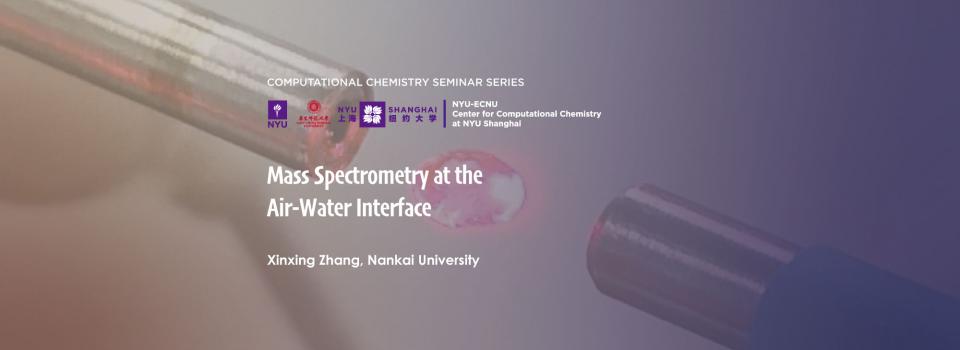
Abstract:
Air-water interface is ubiquitous in nature, including the surface of ocean that takes up more than 70% of earth surface, the surface of cloud droplets, and the surface of human lungs and eyes (the tear film). Consequently, the chemistries that occur at the air-water interfaces are vital in understanding many environmental and biological processes.
Sampling the ultra-thin air-water interface without any interference from the bulk is an obvious technical difficulty. To solve this problem, our lab utilized the unique field-induced droplet ionization mass spectrometry (FIDI-MS) methodology, which is capable of selectively sampling the monolayer of amphiphilic molecules that reside on the air-water interface in an “online” manner. By studying the oxidation chemistry initiated by hydroxyl radicals (OH), we have systematically elaborated many biologically relevant chemical processes that are highly influenced by the biophysical status of the monolayer.
More recently, our lab developed a new phased-array acoustic levitation (tweezers) technique, which is able to manipulate multiple particles simultaneously, and to deliver airborne, container-less chemical reactions. This technique has been combined with FIDI-MS to study the molecular-level mechanism of photodynamic therapy for cancer involving lipid oxidation.
Biography:
Prof. Zhang received his bachelor degree from Fudan University in 2009 and Ph.D. degree from Johns Hopkins University in 2015. After postdoctoral research at Johns Hopkins University (2015-2016) and Caltech (2016-2018), he became a professor of chemistry at Nankai University.
Prof. Zhang’s research interests include two major parts: 1, the spectrometry and messenger spectroscopy of size-selected clusters in the gas phase; 2, various chemistries, such as biophysical chemistry, atmospheric chemistry, and organic chemistry, that occur at the air-water interface interrogated mainly by mass spectrometric methods.
Up to date Prof. Zhang has published 59 SCI papers, in 42 of which he is the first-author or corresponding author. Representative journals he had published in include PNAS, JACS, Nat. Commun., Angew. Chem. et al.
Seminar Series by the NYU-ECNU Center for Computational Chemistry at NYU Shanghai


